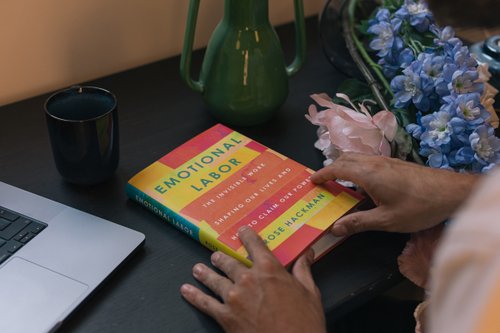Falling asleep on the job: How to work with jet lag
May 06, 2024
7 mins

JB
Writer, translator and journalist
Falling asleep in a meeting with colleagues you’ve just met doesn’t exactly make for a good first impression. However, this is exactly what happened to David McHardy in a particularly embarrassing episode. “The first 10 minutes of the meeting, I was super engaged, but then I just proceeded to fall asleep,” he explains. The reason was that McHardy was sleep-deprived having flown from his native UK to his company’s head office in Arizona the day before. This was McHardy experiencing jet lag at its worst.
Despite business travel having slumped during the COVID-19 pandemic, it is now experiencing a sharp rebound. According to a 2023 report by the Global Business Travel Association, spending on business travel is set to surpass pre-pandemic levels in 2024 – and surge to $1.8 trillion by 2027. In short, business travel is back and here to stay. However, for some, this will mean facing jet lag on a regular basis. “Jet lag is really hard to explain until you’ve experienced it,” McHardy says. “It’s like your body and mind aren’t in sync together. Your body may be awake in meetings, getting things done, but your mind feels like it should be asleep – and vice versa.”
Understanding the effects of jet lag
As neuroscientist Dr. Steven Lockley explains, the underlying cause of jet lag is our bodily clocks not being able to keep up with the rapid change in the light-dark cycle. “Our circadian clock is used to responding to changes in daylight by a few minutes a day, but when you take a flight, you can change multiple time zones in a day and your body clock simply can’t keep up,” he says. Generally, overcoming jet lag is said to take a day for every single time zone that a person crosses.
Jet lag can have differing effects on both our personal and professional lives. McHardy, a customer success manager at Kryterion, says it has “huge” effects on his performance from decision-making to social interaction with colleagues. In the case of the latter, this can have major repercussions. “You can come across as a very different person and burn bridges.” When you’re on a Zoom call back home, you’re in your usual time zone, following your usual routines. However, when you come to meet these colleagues in person, you can seem “grumpy or unfriendly just because you’re jet-lagged.”
Professor of psychiatry, Dr. Jamie Zeitzer, explains that our mood and emotional regulation are affected by a disrupted circadian rhythm. “With jet lag, you might get more stressed or struggle to stay calm in a meeting, and potentially say something you shouldn’t.” This is something that McHardy echoes: “If you snap at someone, that can mean a professional relationship ruined”.
However, it’s important not to overlook the physical and mental toll that jet lag has on our bodies. For example, Lockley highlights that some people report getting sick after traveling. This is because our immune system is also under circadian control. Likewise, people can experience digestion issues because the digestive system is also regulated similarly. The impact on mental health is another factor not to be ignored. For example, studies have shown that flight attendants are more likely to suffer from anxiety and depression than the general population, and international flight attendants are more likely to suffer from depression than those working domestic routes. Together, this all creates a rather toxic cocktail for our productivity and performance at work.
Performance fatigue and a lagging bottom line
As Zeitzer states, jet lag makes people “feel like they have to work harder to get the same job done – even though their brains can still do the tasks.” It also reduces a person’s ability to maintain performance over a long period of time. This has certainly been shown in studies on professional athletes. For instance, nations report a lower gold medal count at the Olympics when their athletes have had to cross a higher number of time zones. Similarly, it has been proven that baseball teams are more likely to lose when jet-lagged. In both studies, these effects were seen to be more acute when traveling eastwards.
“If a 1% difference in your work performance is going to matter, then jet lag matters,” Zeitzer says. It is for this reason that McHardy believes that jet lag goes beyond individual work performance. For him, it ultimately impacts a company’s bottom line through missed opportunities and damaged reputation. “If I was flying to Asia to try and land a new client, and I can barely keep my eyes open in a meeting, how does this sell the company I’m representing?” In his view, companies only tend to take jet lag seriously once they “lose that big deal”. Zeitzer similarly highlights that exhausting travel schedules negatively impact staff retention and sick leave, which can lead to costly recruitment processes and a hike in insurance premiums.
Downtime or bedtime?
It’s not all about work and business, though. As McHardy points out, the effects of jet lag tend to spill over into both your downtime and your personal life. “When you’re on business, there is an expectation for you to socialize. Colleagues want you to have a good time, see the local sights, eat at a local restaurant, but sometimes you’d just rather be asleep.” However, he admits you ultimately join in these activities because people “have often gone to great lengths to plan them and you don’t want to be ungrateful.”
The same rings true once a worker arrives back home to find themselves on a different schedule than their loved ones with activities being ruled out until they’re fully recovered. Once again, McHardy emphasizes that there can be an emotional burden. “If it’s someone’s birthday, you can’t say, ‘I’m sorry, I’m going to bed’. If it’s a relationship you really value, you’ve just got to do it.”
Making light work of jet lag
Suffering from jet lag is inevitable when crossing various time zones in a single day. However, there are steps people can take to minimize its effects. “Light is definitely what shifts this internal clock,” says Zeitzer. “If you’re traveling eastward, you want to get morning light exposure and avoid evening light exposure. If you’re traveling westward, it’s the opposite.”
This is to say that if a person has traveled eastwards, they should “go outside” in the morning because their brain will be several hours behind. In the evening, they should avoid light because it’s what their brain would usually be getting in the home time zone. Zeitzer says that the latter can be achieved by sleeping in a dark room with blackout shades. However, he states that other techniques will work such as wearing an eye mask or even putting a pillow over your face.
Nap with caution
When McHardy travels westward, he blocks out time in his calendar for napping. He finds this to be a crucial coping mechanism during the “challenging” first days of jet lag – especially during the afternoons. “I put this in my calendar a week before so no one can schedule a meeting or a call,” he says.
On the other hand, Zeitzer is keen to state that, if possible, napping should be avoided - especially when traveling eastward. He admits though that “real life interferes with jet lag” and therefore workers may have no choice but to take a nap because they have to head into a meeting having just stepped off a flight. Ultimately there is an individualistic approach to overcoming jet lag. What works for one person won’t work for everyone.
The pitfalls of caffeine and alcohol
McHardy believes there is also a “big temptation” to drink a lot of coffee and energy drinks to power on through, but by his own admission, “when you’re exhausted from jet lag, these just don’t work and simply affect your sleep even more.” Caffeine has markedly different effects on people, which can ultimately prevent people from falling asleep when they need to. This is because, as Zeitzer states, caffeine has a half-life of “anything from two to twelve hours”. Therefore, some people can have “a cup of coffee in the morning and still have half a cup running around their brain at night when trying to sleep.”
Likewise, Zeitzer advises against using alcohol as a sleep aid. “Alcohol does not recapitulate normal restorative sleep - especially in large amounts. It causes dehydration, which fragments sleep.”
Planning ahead
Many business travelers, like McHardy, try to preadapt to a new time zone before flying. This means gradually going to bed a little later in the night before traveling westward, or slightly earlier before flying eastward. “It’s hard to go to sleep earlier than your normal bedtime,” Zeitzer says, “but if you can move it back 15 minutes for a few nights, you may overcome a time zone by the time you leave.” However, he points out that this can get very tricky when someone is taking multiple flights with long layovers. Luckily, there are apps to help with this.
One of these apps is Timeshifter, where Lockley works as chief scientist. The app helps reduce the time it takes someone to adapt to a new time zone by giving a highly individualized plan based on their unique travel itinerary. As Lockley states, “Generic jet lag advice only works about 50% of the time and can actually make jet lag worse.” He points to the fact that the same flight route can require completely different advice depending on its departure/arrival time.
Timeshifter lets you know when you should sleep, use caffeine, and get light exposure in the days prior and after traveling - as well as advising you as to when you can take melatonin if you wish to, which in Lockley’s words “is the only thing except light, which can help reset the circadian clock”. Likewise, the app gives in-flight advice because as Lockley says, “Mealtimes and lighting schedules on flights are not designed to help with jet lag. They’re rather designed to help deliver an easy service”. It is for this reason that they’re now working closely with major airlines to address these issues.
Changing company culture
For McHardy, simply educating workers about the realities of jet lag would go a long way to addressing its effects, stating that some colleagues may have never actually experienced jet lag before. Likewise, he believes companies should design travel policies that factor in the effects of jet lag.
“There’s always a temptation to fly people in at the very last minute to maximize efficiency and save on hotel and travel costs, but companies need to understand that they’re not going to get the best version of a person if they’ve just taken a long flight and had no sleep.” McHardy believes companies should allow workers to fly in one or two days before to let their bodies and minds recover. “If a worker loses a contract because of jet lag, an extra day in a hotel is nothing,” he says. Zeitzer seconds this, stating that “it might be that spending an extra couple hundred dollars is better for a worker and might tilt the scale to get that big contract.”
Photo: Welcome to the Jungle
Follow Welcome to the Jungle on Facebook, LinkedIn, and Instagram, and subscribe to our newsletter to get our latest articles every week!

More inspiration: Mental health

‘We need each other’: Monika Jiang on combating loneliness in hybrid work
Hybrid work offers flexibility but can leave us feeling disconnected. Monika Jiang explores how we can rebuild workplace connections.
Dec 19, 2024

Struggling at work? Here are 3 steps to rebuilding your self-esteem
Low on confidence? Learn how reflection, recharging, and refocusing can help you rebuild self-esteem and thrive professionally.
Nov 27, 2024

10 ways to beat the Sunday Scaries
Even people who love their jobs can experience the Sunday Scaries. Psychologist Karen Doll offers several strategies to help manage and overcome it.
Sep 12, 2024

Unpacking the burden of emotional labor
Rose Hackman’s "Emotional Labor" reveals how managing emotions impacts everyone, especially women and minorities.
Aug 08, 2024

Is financial anxiety harming your productivity?
Feeling overwhelmed by financial anxiety? You're not alone. Discover practical steps and expert advice to regain control of your work-life balance.
Jul 31, 2024
The newsletter that does the job
Want to keep up with the latest articles? Twice a week you can receive stories, jobs, and tips in your inbox.

Looking for your next job?
Over 200,000 people have found a job with Welcome to the Jungle.
Explore jobs